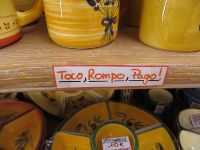Day 12 - 24th October - Carcassonne - Château (Part 2)
I then returned to the chateau to explore it at leisure.
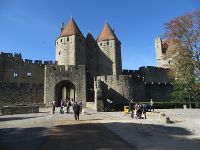


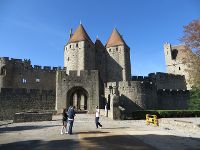

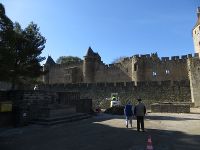
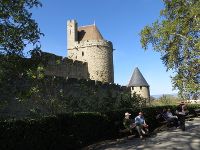
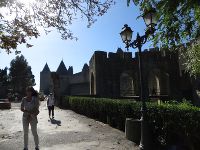
Château
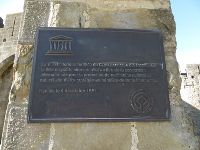
UNESCO World Heritage plaque
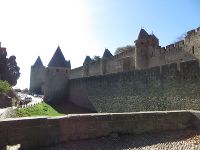
Walls
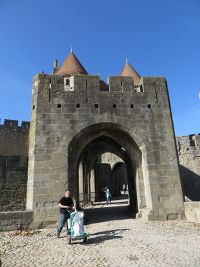
Gatehouse
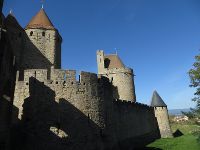
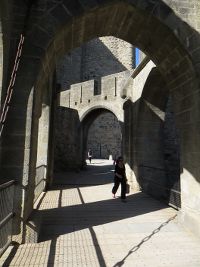
Notice that it's not a simple passageway - there's more than one strong point.
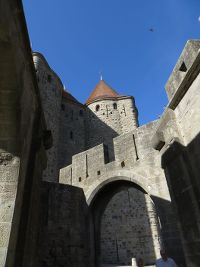
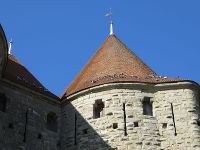
Birds on tower roof
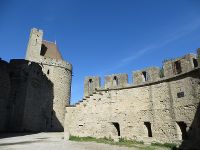
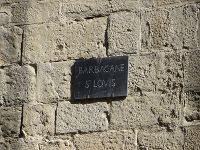
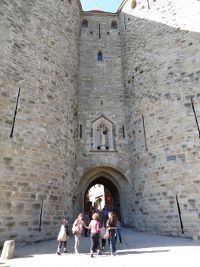
St Louis Barbican
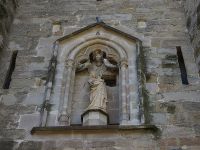
Smiling Virgin above gate offering us Jesus. Naturally this is a copy.
This was put here to offend the Cathars who couldn't accept it.
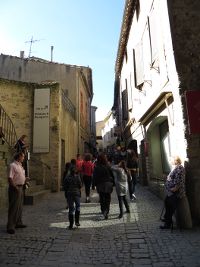
Another tourist trap street. Medieval streets are ideal since they're narrow so you must run the gauntlet.

Entrance to paid area.
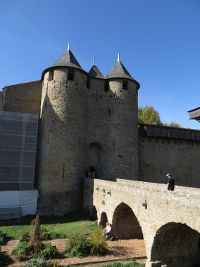
Across moat
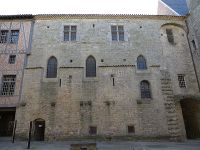
This is interesting as it shows the stages of development. What you see jutting out is the old roof. The arrow slits are the Romanesque windows. And the big windows are Gothic, I think.
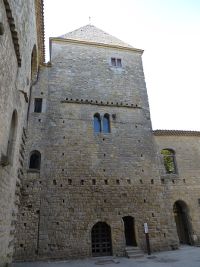
Another example of multiple stages of development
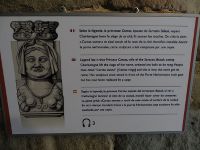
On how Carcassonne got its name
In Spanish too
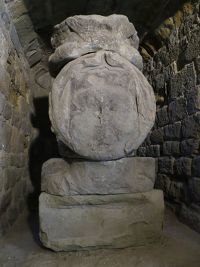
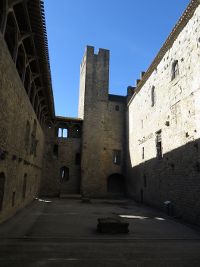
Courtyard

They have audioguides in Catalan!

On Eugène Viollet-le-Duc, restorer of Carcassonne

On the ramparts
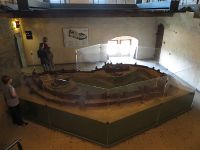
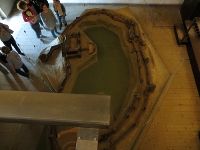
Model of city


On restoration
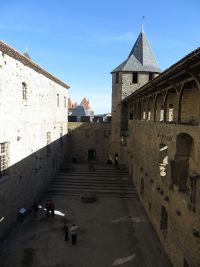
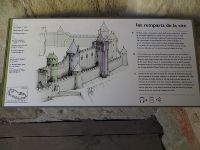
On the ramparts

View. Pyrenees in the background.
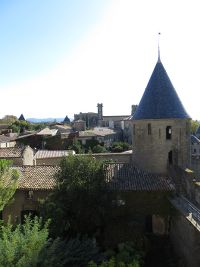
Tower and town: Western Ramparts and Cathedral
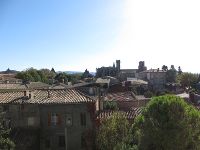
Town from ramparts

On Basilica of St Nazareth and St Celse
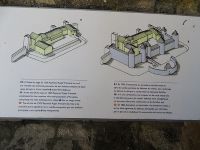
Development of Carcassonne
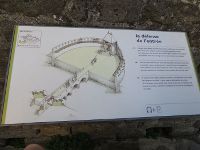
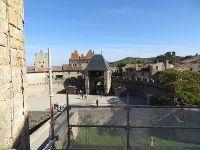
Elaborate defences: there was a buffer area between the Barbican and the castle-proper
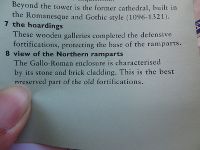
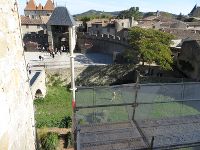

Northern Ramparts with Gallo-Roman bits
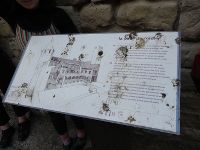
On the middle court
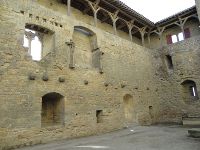
Fireplace on first (second storey)
On the private tour I'd been unable to scribble since I was talking/listening all the time, but I'm adding what I managed to scribble later on my second round
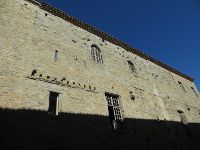
Windows
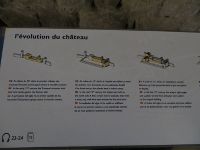
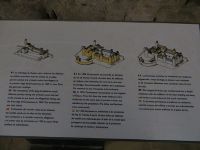
On the evolution of the castle

Walkway
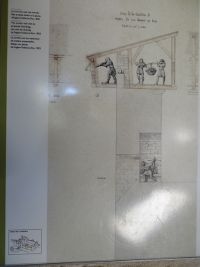
Defences sketch
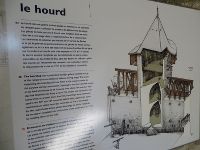
Hoarding
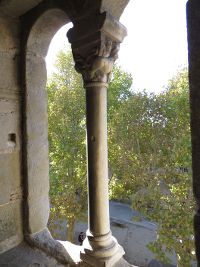
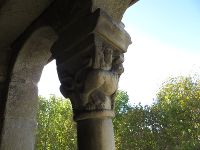
Pillar and capital
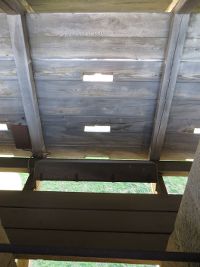
Holes to throw shit down at attackers

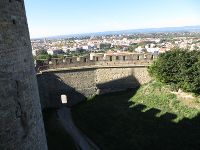
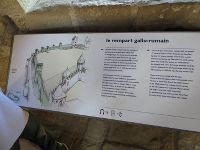
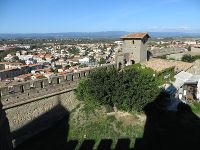
On Gallo-Roman ramparts

View of new(er) town
I was amused by the open plan of the castle. Or the keep, anyway. But it was an entire fortified city so it wasn't so bad.
There were no transepts in the churches - this was the Cathar idea of equality (no different parts of the church for different social classes).

On Aude barbican
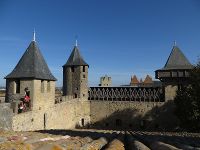
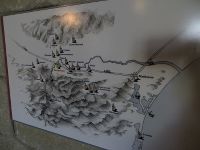
Carcassonne's position commanding the surrounding area


Virgin of the Narbonnaise Gate
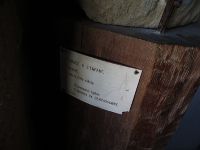

The guide said this second virgin was Romanesque so it was stuffer, but the sign says 16th century. He said Gothic was very complex and distant, but Romanesque was more chin chai, so people were closer to the art even though it was less realistic.
The Dominicans tried to win over the Cathars the soft way, but St Dominic died so the Church made his followers perform an Inquisition since they knew who was Cathar.
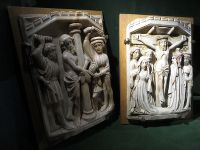
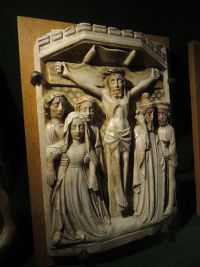

Alabaster
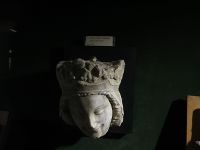
Head of Crowned Virgin
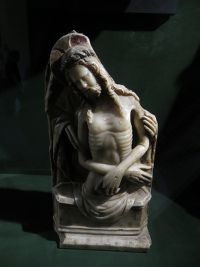
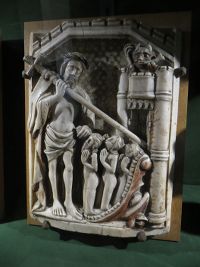
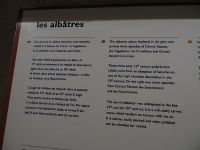
On the alabasters

Heads
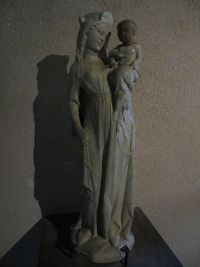
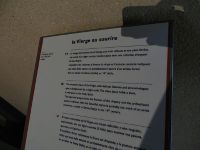
Smiling virgin
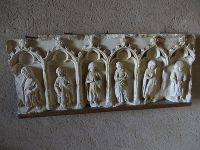
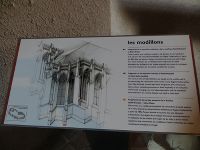
Modillons
There doesn't seem to be an English equivalent. A Modillon is a sculpted architectural element which supports a cornice, the pre-roof (avant-toit) or balcony.
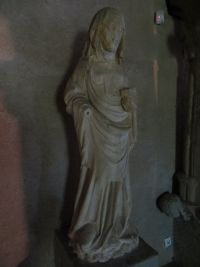

These are not labelled but the Angel is Romanesque and the Virgin Gothic. Ergo the lively dress and smile. The Reims virgin's smile is even bigger.
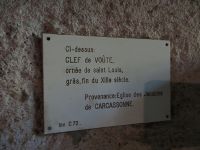
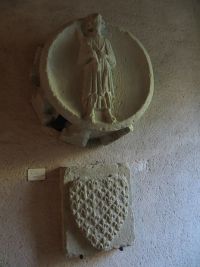
Vault key sign
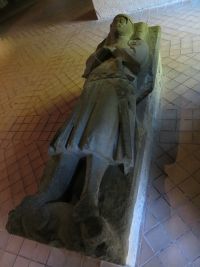
Effigy of Castillian Knight. He came to serve under the Mother of St Louis (the regent)
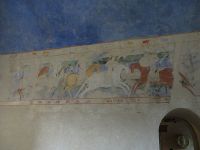

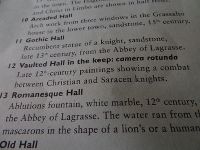
Christian Knights fighting Saracen Knights mural - late 12th century
The yellow horse with the face is drawn with a technique Picasso used which shows 2 aspects of a face. According to the guide this was French Romanesque.
The one on the right with a round shield and a turban is a Saracen. He is also on the floor under his horse.
On the top right you see a camel - drawn by someone who's neer seen one.
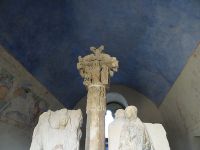
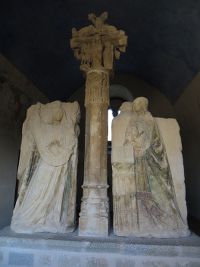
Back: shows the Annunciation
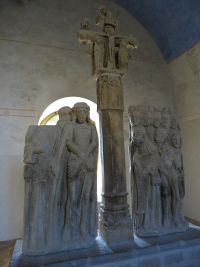

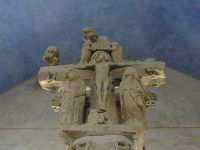
Front: shows the Crucifixion
The Virgin is on his right. On he left is St John who has no beard because he is young. Mary Magdalene at the front collects blood and is smaller.
Below is St Andrew and his cross and St Peter and his keys.
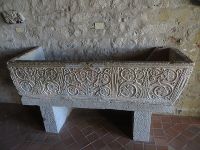
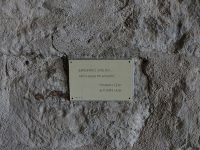
Christian sarcophagus
The Left Centre and Right represent the Trinity
The wheat is a pagan symbol now representing the bread of Christ
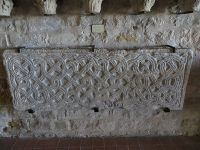
This should be the sarcophagus lid. The 12 circles represent the 12 apostles and also the 12 cities of Languedoc. The circles are composed of 3 concentric circles - the Trinity.
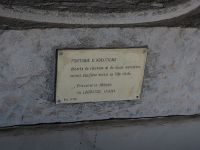
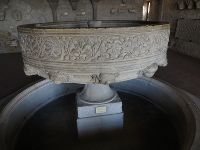

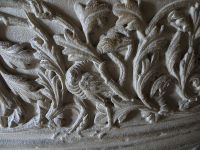
Ablutions fountain
The bird in the detail is like a caligraphy letter (the ones starting paragraphs).
The leaves are more vivid than in the Sarcophagus previously snapped
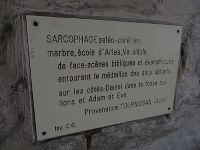

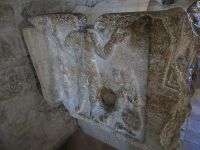
Paleo-Christian sarcophagus
On the bottom right at Abraham and Isaac
On the side are Daniel and the Lions
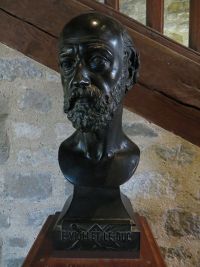
Eugène Viollet-le-Duc
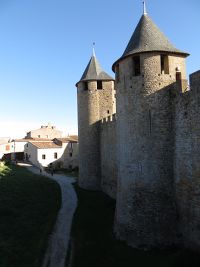
Wall and towers
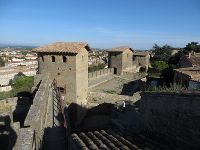
These 3 towers are original

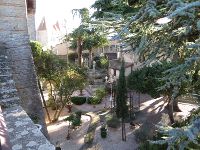

Garden
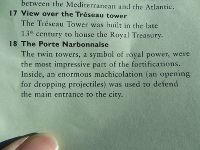
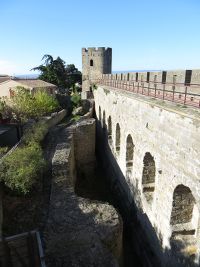
Porte Narbonnaise
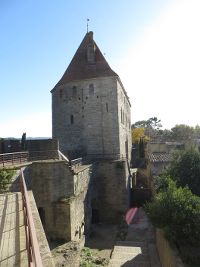


Town view
